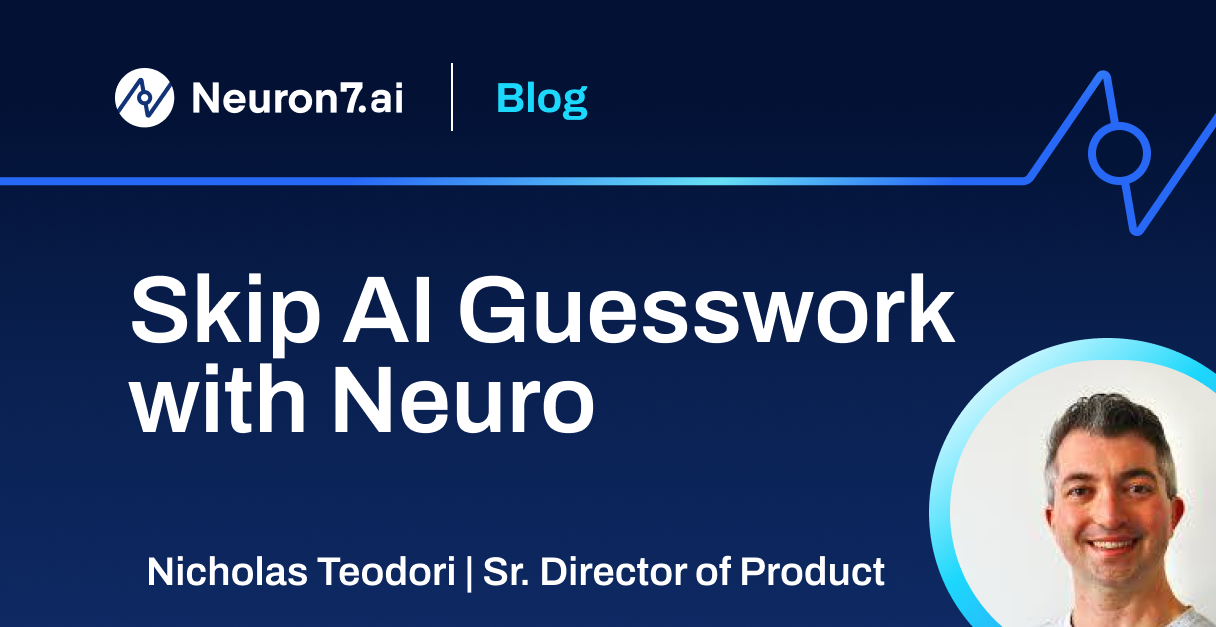A Conversation with Bill Girzone of NCR Atleos

NCR Atleos is a $4.1B global enterprise that helps banks and retailers deliver best-in-class self-service solutions through industry-leading technologies and unmatched global services capabilities.
Bill Girzone, SVP Global Field Services, discusses how NCR Atleos works with Neuron7.ai to reduce call handle times, the importance of time to value, finding a solutions-oriented partner in AI for service, and more.
Q: What challenges lead to AI becoming a priority?
A. This was the beginning grounds of AI for NCR Atleos. These are quintessential services issues: first time resolve, revisits, and massive amounts of attrition in different parts of the world.
So, a lot of onboarding of new folks, which creates issues with scaling training, scaling our tech support. We really needed a solution that didn’t grow with the size of the problem.
Q: What were you looking for in an AI partner?
A. One of the big things was not having a lot of the technology in-house. We really wanted to work with someone who would stay ahead of the technology curve. That was important to us.
Another really big one was for some of the behemoth software companies translating their solutions down to what we specifically need, that almost felt impossible.

What we really needed was a partner that could understand our needs, understand our business, and then tune the products to do what we needed them to. And that’s ultimately what I saw in Neuron7 and that was a big piece of how we started on the path together.
Q: What are some of the takeaways and results you’ve experienced?
A. First, this wasn’t something we needed to spend 12 or 18 months developing. This was real…I didn’t have to wait. From an operational leader perspective, that’s gold. This isn’t a 2026 type of discussion.
In services, it’s about first-time resolve. That’s one of our most important KPI. So how long does it take to close a field services case? Somewhere on the order of 90 minutes. Every minute matters.
When you take Intelligent Search, we’re averaging around five minutes of savings on a thousand calls a day. That’s 6 or 7% on a 90-minute call. That’s huge. That product paid for itself even in its infancy in about two and a half months.
Q: What are you looking forward to next in the AI journey at NCR Atleos?
A. I think that we’re still at the beginning phases and already experiencing a strong return. Just in the 80,000 uses since it started, at five minutes a piece, that’s 350-400,000 minutes saved.
The Neuron7 product really gets to exactly what we needed, which was to get technicians who were newly onboarded…a product that levels the playing field and allows them to be as successful as a 10-year or longer technician. And that’s really what we hope to get with Intelligent Diagnostics.
And one of the unexpected things, as we talked about the future state Neuron7 product lines, those products match where we’re headed. When you think about next likely failure or preventative maintenance on an individual unit, this is the stuff that is ultimately what NCR Atleos needs to change and evolve our service model.
Q: What advice would you give service leaders advocating internally for AI solutions?
A. The biggest thing here is reframing your risk…So, the risk is that you have this massive amount of spend (on revisits) that’s effectively the cost of poor quality or waste. The scrutiny should be there. Not as much on trying something new.
And I think don’t be afraid. That was it for me. It’s the risk of not doing something. The risk is when you have to ramp hundreds and hundreds of new people through extensive training and have them still not be as good as you want them to be. That’s not sustainable. That’s what hurt services. That’s what crunches your margins and hurts your customer sentiment.
And I think what’s interesting about some of the AI solutions is that they don’t scale with the size of the problem. They level that playing field, so to speak.




